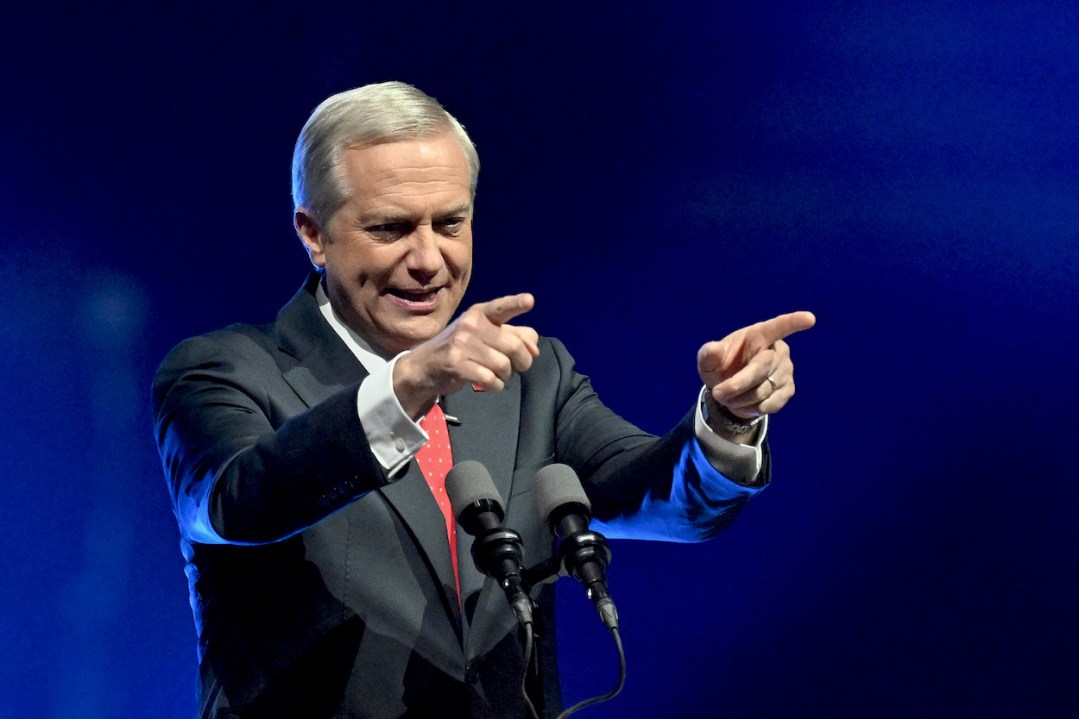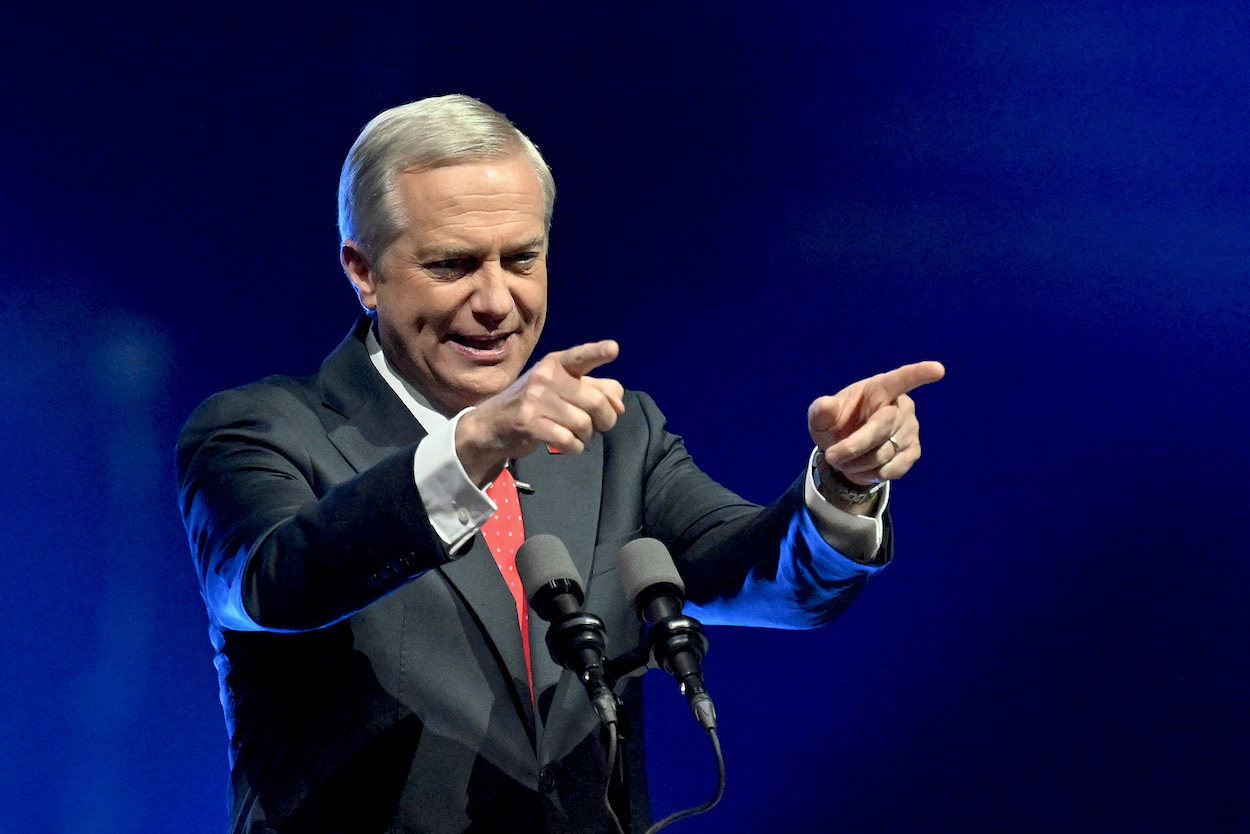A border ‘ditch’ may prove to be the thing that brings the right back to power in Chile. Although the communist-affiliated candidate Jeannette Jara leads the polls going into this weekend’s election, a second-round run-off seems almost certain, with a consolidated right-wing alliance – running on a platform to cut illegal immigration – likely to win the final showdown.
Jose Antonio Kast, the leading right-wing candidate, is a hardliner who admires both Donald Trump and El Salvador’s President Nayib Bukele. He has promised to rule with ‘mano dura’ (an iron fist). He says drug dealers will be held in in solitary confinement and has pledged to construct a series of ditches and walls to secure Chile’s northern border.
Kast’s frontier talk is playing well with voters, but his critics have pointed out that promising to ‘ditch and wall’ one of the world’s longest land borders at 4,000 miles is more likely a piece of political theatre. In recent years, more than half a million Venezuelans have arrived in Chile, driven by the economic collapse in their country. Kast has threatened undocumented migrants with expulsion if they don’t leave the country themselves. At a recent conference in Hungary he claimed that Chile has been overrun by foreigners including ‘criminals, murderers, members of international gangs, rapists and abusers.’
Kast is currently trailing a few points behind Jara going into the first round. Jara recently played a key role in reforms which gave more rights to workers, including decreasing the working week from 45 hours to 40. She has promised to be tough on crime without rolling back rights. Analysts, however, say her long-time affiliation with communist politics leaves her facing a huge challenge, despite her narrow poll lead. A run-off is almost certain, where the right-wing vote would likely consolidate.
Kast, if he was Jara’s main opponent, would likely inherit votes from other right-wing candidates, including Johannes Kaiser, a YouTuber who gained prominence during the pandemic with videos on migration, and Evelyn Matthei, another conservative figure. Kaiser has promised to follow the example of President Trump and deport undocumented migrants with criminal records to El Salvador’s notorious prisons.
A win for any of them would add another chapter in Latin America’s conservative revival. Slow long-term economic growth, immigration concerns and a rise in crime across the region are crucial reasons for this shift. Millions of Venezuelans have been forced to flee their country in recent years, opening the door to populist leaders who blame them for the increase in criminality.
Opponents of Kast point out that, despite rising crime, Chile remains one of Latin America’s safest nations, and warn that he is selling a dream rather than actionable policies. There are also fears that a Kast presidency could bring back the spectre of Chile’s long-time dictator Augusto Pinochet. Pinochet, who seized power in a US-backed coup in 1973, oversaw a brutal 17-year regime during which 40,000 people were killed, disappeared or tortured for their leftist political views.
Chile has long been one of Latin America’s wealthiest, most stable and most secure democracies
Kast’s promise to definitively ‘close the 1973 to 1990 chapter’, coupled with hints of pardons for some Pinochet enforcers, has revived some old arguments about the dictatorship. Some younger voters now view Pinochet not as a dictatorial tyrant but as a symbol of authority. This has concerned those who remember the dark days of forced disappearances and murder.
Chile has long been one of Latin America’s wealthiest, most stable and most secure democracies. If it takes a rightward swing and elects an immigration hardliner, then populist candidates in countries such as Colombia and Peru will get a boost too. It could also mean another Latin American leader cosying up to Donald Trump, as President Javier Milei has done in neighbouring Argentina. This would have knock-on effects on aspects like the race for critical minerals, of which Chile has great reserves. More than anything, though, a rightward turn in this traditionally cautious country would signal a definitive changing of the regional mood. The Latin American appetite for ‘tough’ leaders might be making a comeback.








Comments